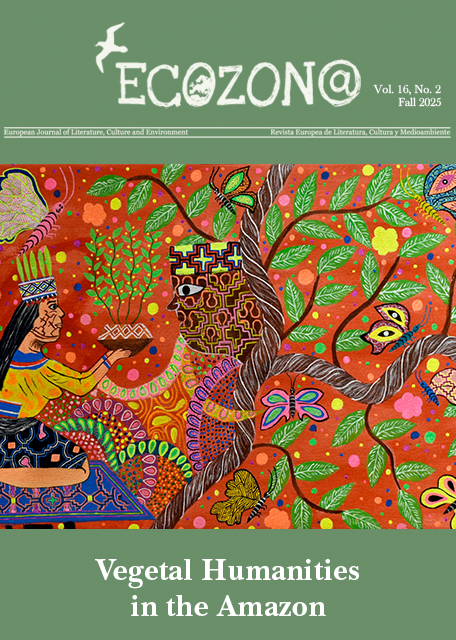The Sounds of Cetacean Revolution Through History
Schlagworte:
whales, seventeenth-century poetry, animal revolutionAbstract
This article examines rogue whale encounters in seventeenth-century English poet Edmund Waller’s “The Battle of the Summer Isles” (1645), a poem that seeks to establish human dominion through an epic struggle between settlers attempting landfall on the Bermudian shore and a pod of sperm whales who prevent such actions. Through the poem’s use of sound, in particular the whales’ cries for justice, I find resonance with the concept of nonhuman revolutions we see actualized through the whales and orcas of today. This article traces a cultural history of whale resistance by and through sound. Part 1 recalls historical whale resistance narratives to establish prevalence for what we now term “orcanization.” I briefly show how three particular whales have disrupted narratives of cetacean kindness or friendship, choosing anti-human violence despite their capacity for kindness: White Gladis of yacht-sinking fame, the notorious Tilikum of Blackfish (2013), and Mocha Dick, the sperm whale that inspired Herman Melville’s Moby Dick (1851). Part 2 explores how Waller’s whales represent a narrative of roguish animal revolution: of whales that, in their courage, disruption, and refusal to die, muddle the Empire’s myth of New World domination. In conclusion, I assert that in the sound of orcas breaking rudders today we can hear a history of whale narratives: examples of resistance, calls for reparation, and a reminder that this world is a shared one
Downloads
Downloads
Veröffentlicht
Ausgabe
Rubrik
Lizenz
Authors who publish with this journal agree to the following terms:
a) Authors retain copyright and grant the journal right of first publication with the work simultaneously licensed under a Creative Commons Attribution License that allows others to share the work with an acknowledgement of the work's authorship and initial publication in this journal (CC BY-NC for articles and CC BY-NC-ND for creative work, unless author requests otherwise.
b) Authors are able to enter into separate, additional contractual arrangements for the non-exclusive distribution of the journal's published version of the work (e.g., post it to an institutional repository or publish it in a book), with an acknowledgement of its initial publication in this journal.
c) Authors are permitted and encouraged to post their work online (e.g., in institutional repositories or on their website) prior to and during the submission process, as it can lead to productive exchanges, as well as earlier and greater citation of published work (See The Effect of Open Access).










